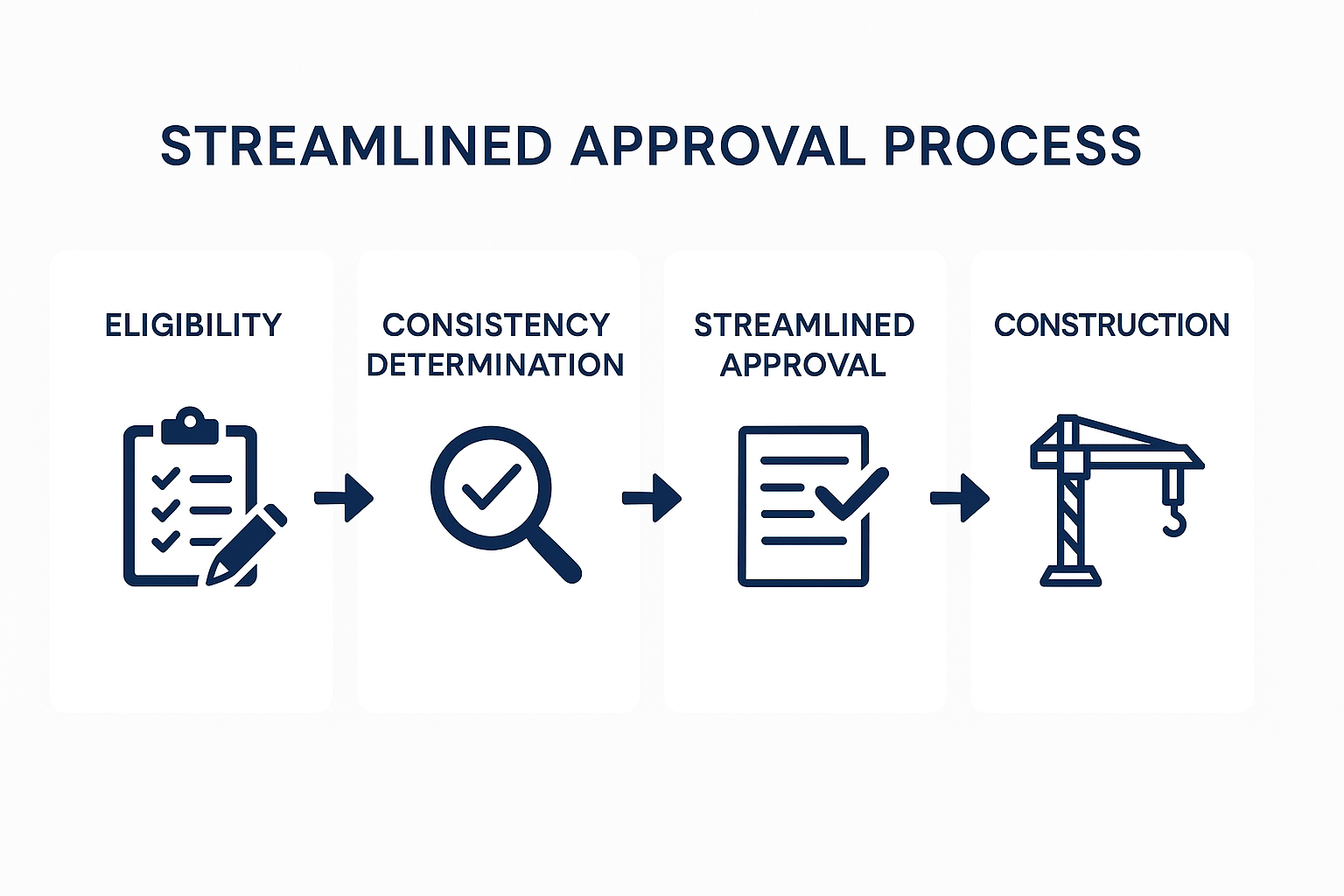Here’s what it means in practice:
California is on a mission to install tens of thousands of high-density stack-and-pack apartment dwellings and affordable housing units to conform to the vision of the past President Obama, as outlined in the Affordable Furthering Fair Housing (AFFH) initiative. Stack up to the heavens, and they will come. To accomplish this, the California Legislature and Governor Newsom have mandated that the approval authority be transferred to a state-level bureaucracy and removed from local municipal governments. Local municipalities are left out in the cold, with only the authority to approve, subject to state mandates ministerially. The state has effectively neutered local governments’ authorities relating to building.
🔍 Definition
A streamlined ministerial approval process is:
- Non-discretionary: Local governments must approve qualifying housing projects without subjective judgment or public hearings.
- Objective standards only: Projects are reviewed solely against pre-established, measurable criteria like zoning, design, and environmental rules
- Exempt from CEQA: These projects are not subject to the California Environmental Quality Act (CEQA), which typically requires lengthy environmental reviews
🏗️ Purpose
The goal is to speed up housing construction, especially in jurisdictions that:
- Have not met their Regional Housing Needs Allocation (RHNA) targets.
- Face high housing costs and shortages
✅ Eligibility Criteria
To qualify for streamlined approval under laws like SB 35 and AB 2011, a project must:
- Be in a city or county not meeting RHNA goals.
- This includes a minimum percentage of affordable housing units.
- Be on an infill site (previously developed or surrounded by urban uses).
- Comply with objective zoning and design standards.
- Use a skilled and trained workforce, often with prevailing wage requirements
🕒 Timelines
Local governments must:
- Determine consistency with standards within 60 days (or 90 days for larger projects).
- Approve or deny the project within a fixed timeframe, without delays from public hearings or appeals
🏛️ Impact on Local Control
- Cities and counties lose discretion over which projects qualify for funding.
- They must approve projects that meet objective criteria, even if local opposition exists.
- These shifts plan authority from local governments to state-mandated compliance.
